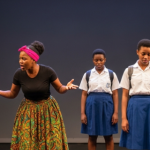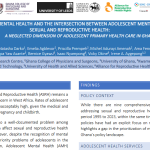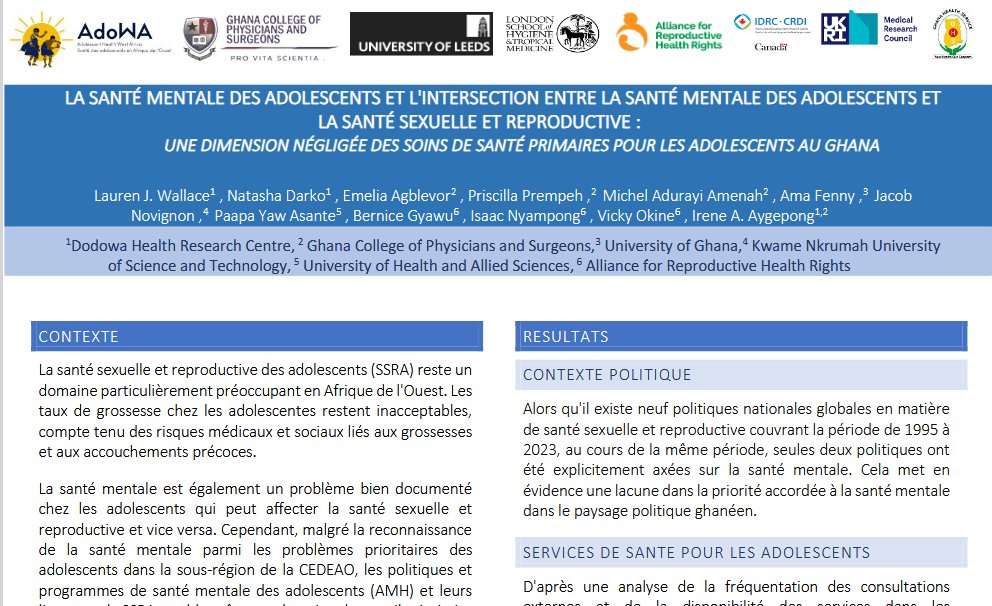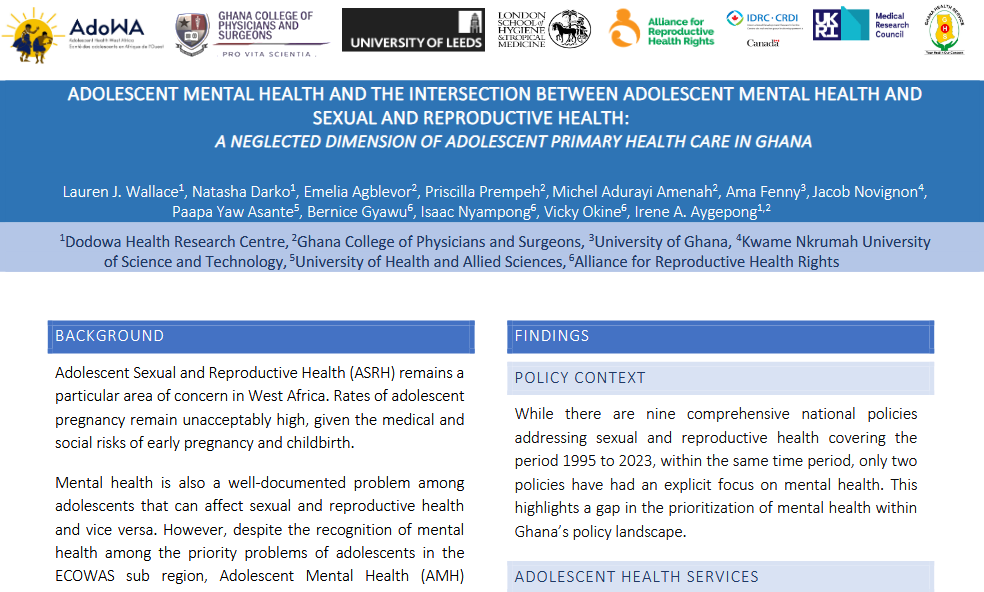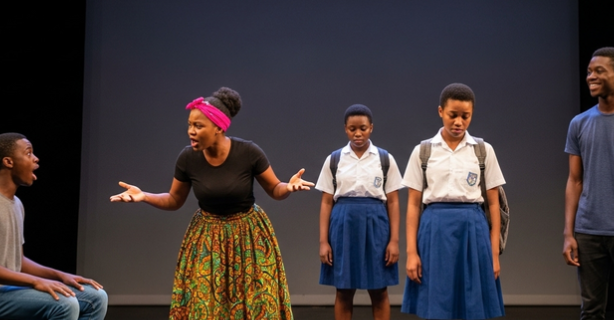
National Co-creation Forum

AdoWA National Stakeholders Co-creation Forum
By Nana Oye Gyimah
In an effort to transform adolescent health services in Ghana, the Adolescent West Africa (AdoWA) Project, a collaboration between the Ghana College of Physicians and Surgeons and the Dodowa Health Research Centre, with support from the Alliance for Reproductive Health Rights, recently convened a national co-creation forum.
The forum brought together stakeholders from the health and education sectors, other relevant government agencies, civil society organisations, development partners, and adolescents, providing a platform to share findings from the project and collaboratively design an intervention aimed at making adolescent services more youth-friendly and gender-responsive.
Presenting findings from studies conducted across the four study sites in the Greater Accra Region, Dr. Emelia Afi Agblevor, a Postdoctoral Researcher on the project, drew on focus group discussions and rich picture exercises with adolescents. These revealed that stigma, breaches of confidentiality, and financial barriers continue to prevent many young people from accessing the care they need. A particularly troubling insight was the widespread mistrust adolescents feel toward school-based counselling systems. Despite the presence of safe spaces and peer support frameworks, adolescents reported that teachers often fail to maintain confidentiality, with some even disclosing sensitive information to colleagues or during classroom discussions. “It makes us not to want to talk at all,” one adolescent shared.
Other challenges discussed included:
- The stigma and shame associated with teenage pregnancy often resulting in isolation or punishment rather than support.
- Financial barriers that prevent access to healthcare, especially in under-resourced schools.
- Limited access to trained mental health professionals and counsellors in both school and community settings.
- The inadequate state of adolescent corners or safe spaces, especially for out-of-school youth.
- Concerns over how parents respond to academic failure, often neglecting the underlying mental health dimensions.
- The value adolescents place on receiving accurate sex education from parents and teachers over peers, suggesting a need for structured, age-appropriate family life education.

Mr. Michel Adu Amenah, a health economist, highlighted structural inefficiencies in primary health care (PHC) facilities that prevent them from adequately meeting the adolescent mental, sexual and reproductive health (AMSRH) needs of adolescents. The findings he shared from the ongoing AdoWA project revealed that many facilities lacked the appropriate equipment and infrastructure to deliver comprehensive adolescent healthcare. Overall, PHC facilities assessed were rated at a moderate 50 to 60% in terms of their capacity to provide holistic AMSRH services.

Amid these challenges, discussions at the forum explored how Theatre for Development (TfD) could be used to engage adolescents and communities in shaping responsive and gender senisitive interventions. By using storytelling and drama, the TfD approach offers a culturally resonant way to address taboos, build empathy, and co-create solutions with adolescents.
Prof. Irene Agyepong, the Principal Investigator in her closing remarks, brought to the fore, the importance of adolescents in the policy process. She said, “We cannot design health systems for adolescents without them. Their voices must be central not peripheral in shaping policy and services.”

The Stakeholders Forum served as a pivotal step in that direction. It reminded all present that while systemic reform is complex, it starts with listening to the ones who matter most, the adolescents themselves.

